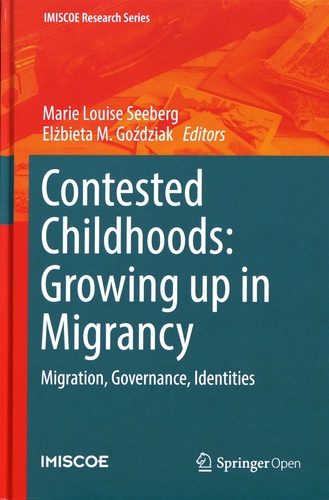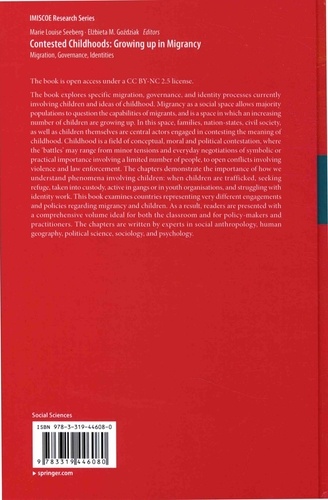En cours de chargement...
The book explores specific migration, governance, and identity processes currently involving children and ideas of childhood. Migrancy as a social space allows majority populations to question the capabilities of migrants, and is a space in which an increasing, number of children are growing up. In this space, families, nation-states, civil society, as well as children themselves are central actors engaged in contesting the meaning of childhood.
Childhood is a field of conceptual, moral and political contestation, where the "battles" may range from minor tensions and everyday negotiations of symbolic or practical importance involving a limited number of people, to open conflicts involving violence and law enforcement. The chapters demonstrate the importance of how we understand phenomena involving children : when children are trafficked, seeking refuge, taken into custody, active in gangs or in youth organisations, and struggling with identity work.
This book examines countries representing very different engagements and policies regarding migrancy and children. As a result, readers are presented with a comprehensive volume ideal for both the classroom and for policy-makers and practitioners. The chapters are written by experts in social anthropology, human geography, political science, sociology, and psychology.



